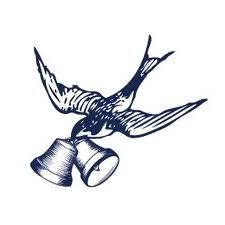 Gathering war clouds do not keep the wedding bells from ringing: Woodson Reilly Cummings (born January 8, 1838) marries Elizabeth Mann Houchins in Monroe County, Virginia. In February 1862, the couple’s first child is born.
Gathering war clouds do not keep the wedding bells from ringing: Woodson Reilly Cummings (born January 8, 1838) marries Elizabeth Mann Houchins in Monroe County, Virginia. In February 1862, the couple’s first child is born.
Calls for enlistment conflict Cummings, whose Baptist religious convictions are opposed to fighting. His wife and young son don’t want him to leave them.
Yet like many other reluctant Confederates of modest means, Cummings fulfills his duty, enlisting and marching off to war with Company C, Virginia Sharpshooters. During the war, Cummings, like many other soldiers facing death on distant battlefields, bargains with God for his life. Should God spare his life, the new father promises to dedicate the remainder of his years in the service of mankind.
Elizabeth is one of the fortunate war-time wives; unlike so many, she is not widowed. Cummings survives the war and keeps his vow. After the war he becomes a doctor, teacher, inventor (including obtaining several patents) and Primitive Baptist elder. Meanwhile, Woodson and Elizabeth raise thirteen children.
Woodson Cummings lives long after the war, dying May 20, 1907. His obituary remembers him as:
“… pleasant and entertaining in conversation, amiable and loving and gentle in manners … humble, meek and quiet. He was chaste in conversation, honest, truthful, virtuous in everyday life and commanding in appearance. He was a loving husband, a good father, a good neighbor, a good citizen, a good physician, a good church member. He went night and day, through cold, wet and heat, everywhere … seeking to alleviate poor suffering humanity.”
That a man who killed many of his northern countrymen in order to maintain the enslavement of blacks would, after the war, become a healer of broken bodies is a snapshot of the irony that bathed the Confederacy during its short existence.
Source: United Daughters of the Confederacy (link)


